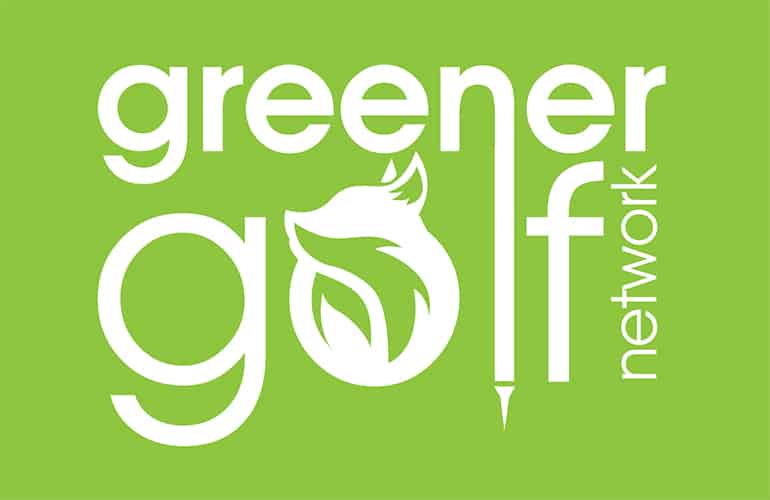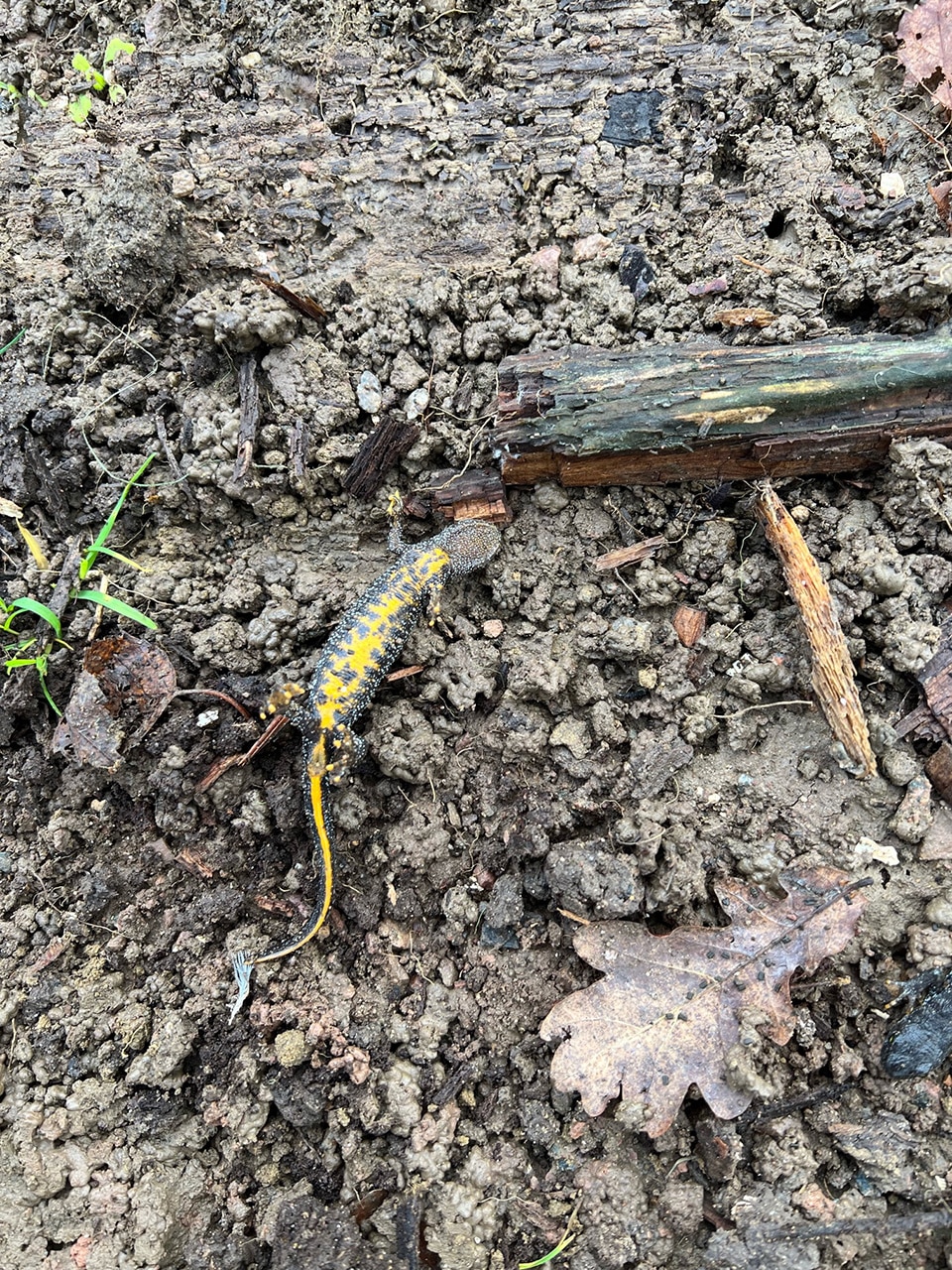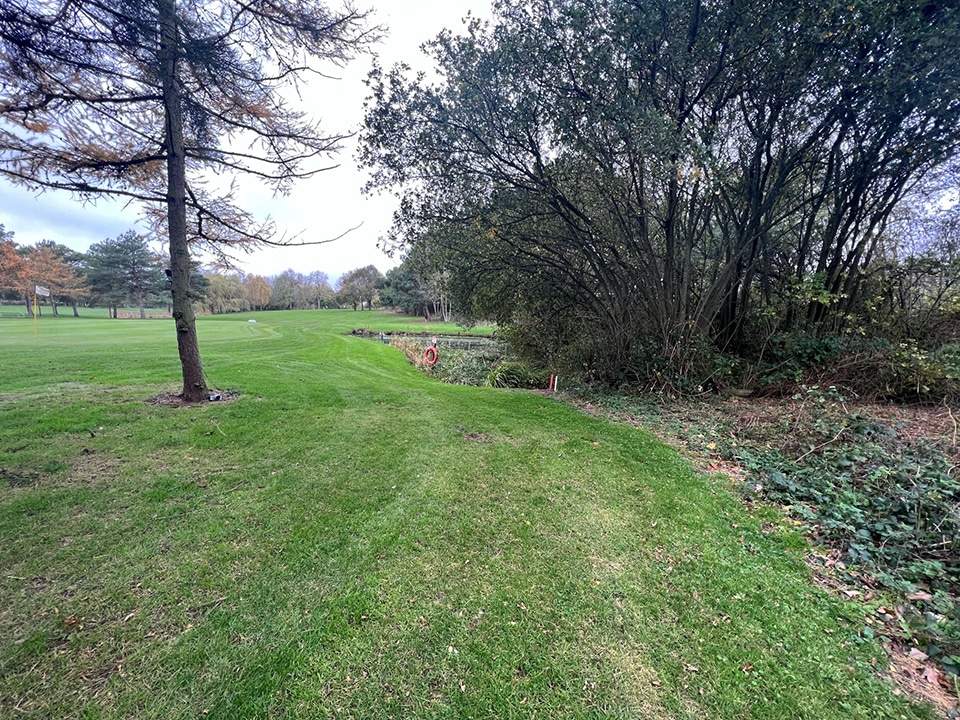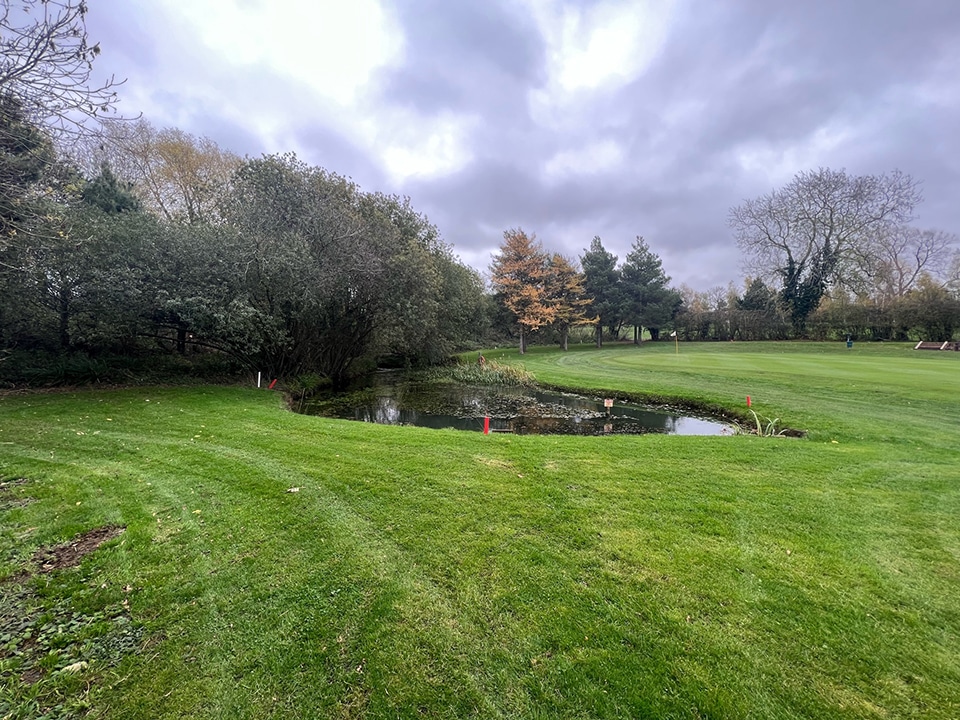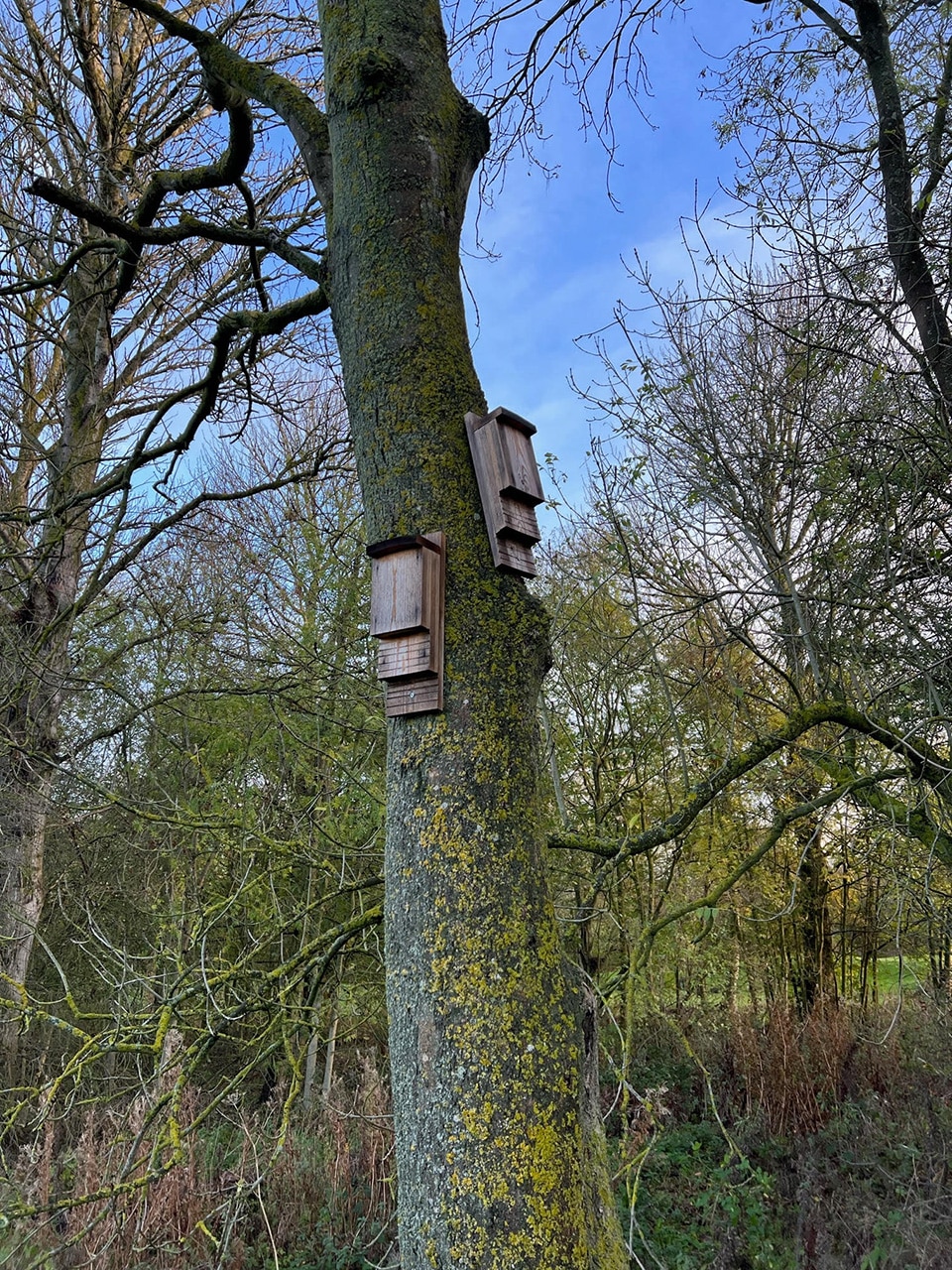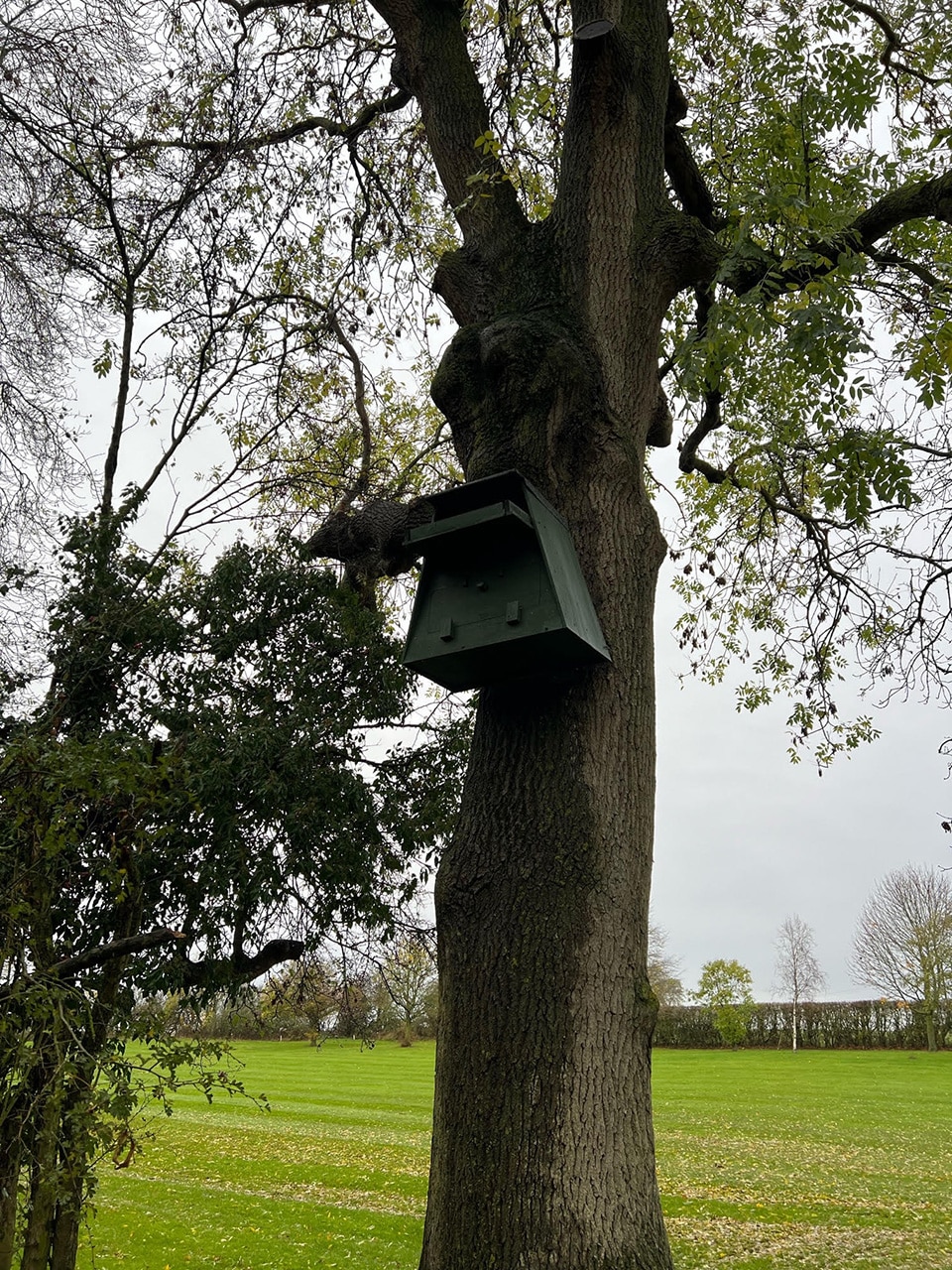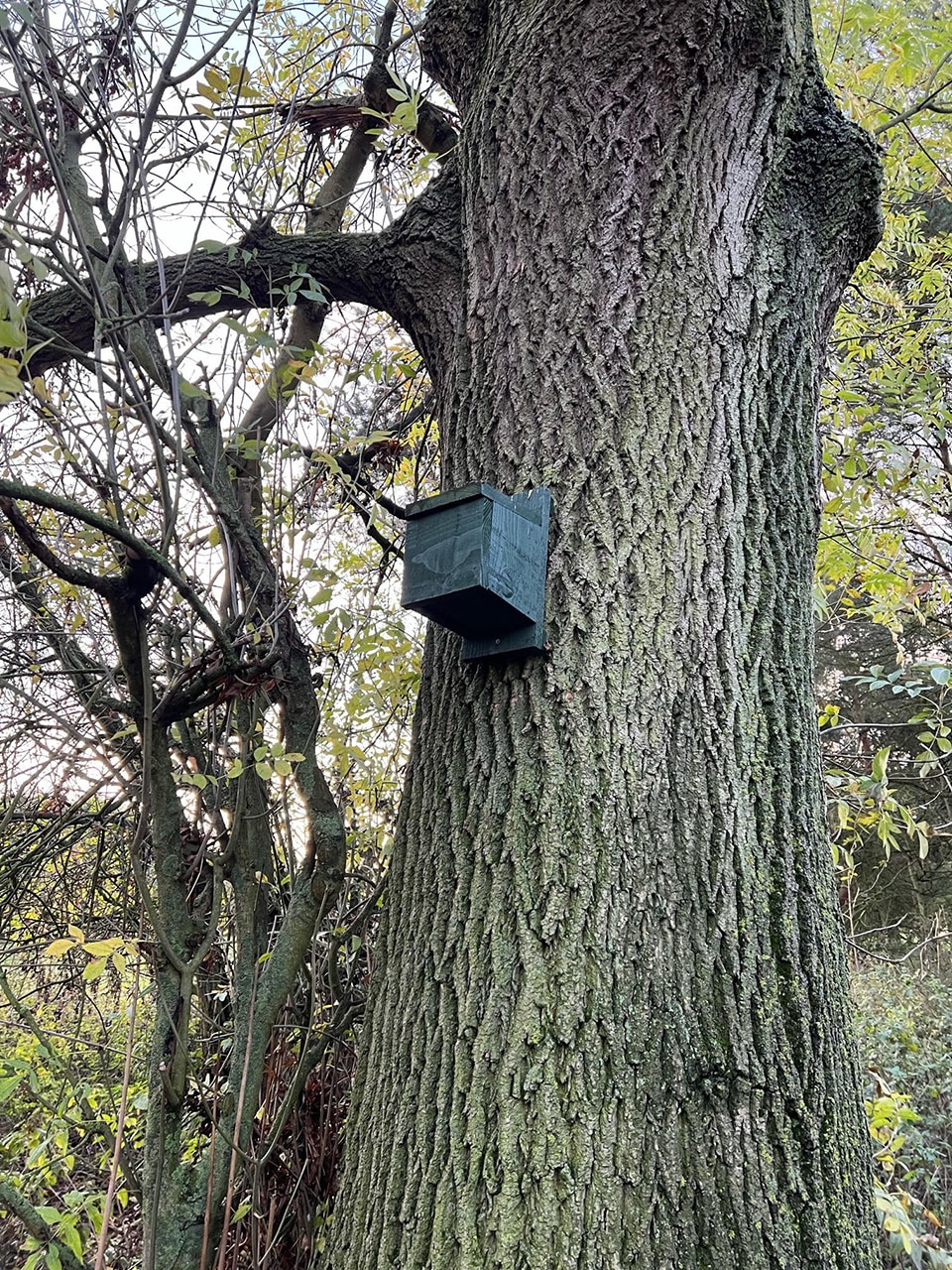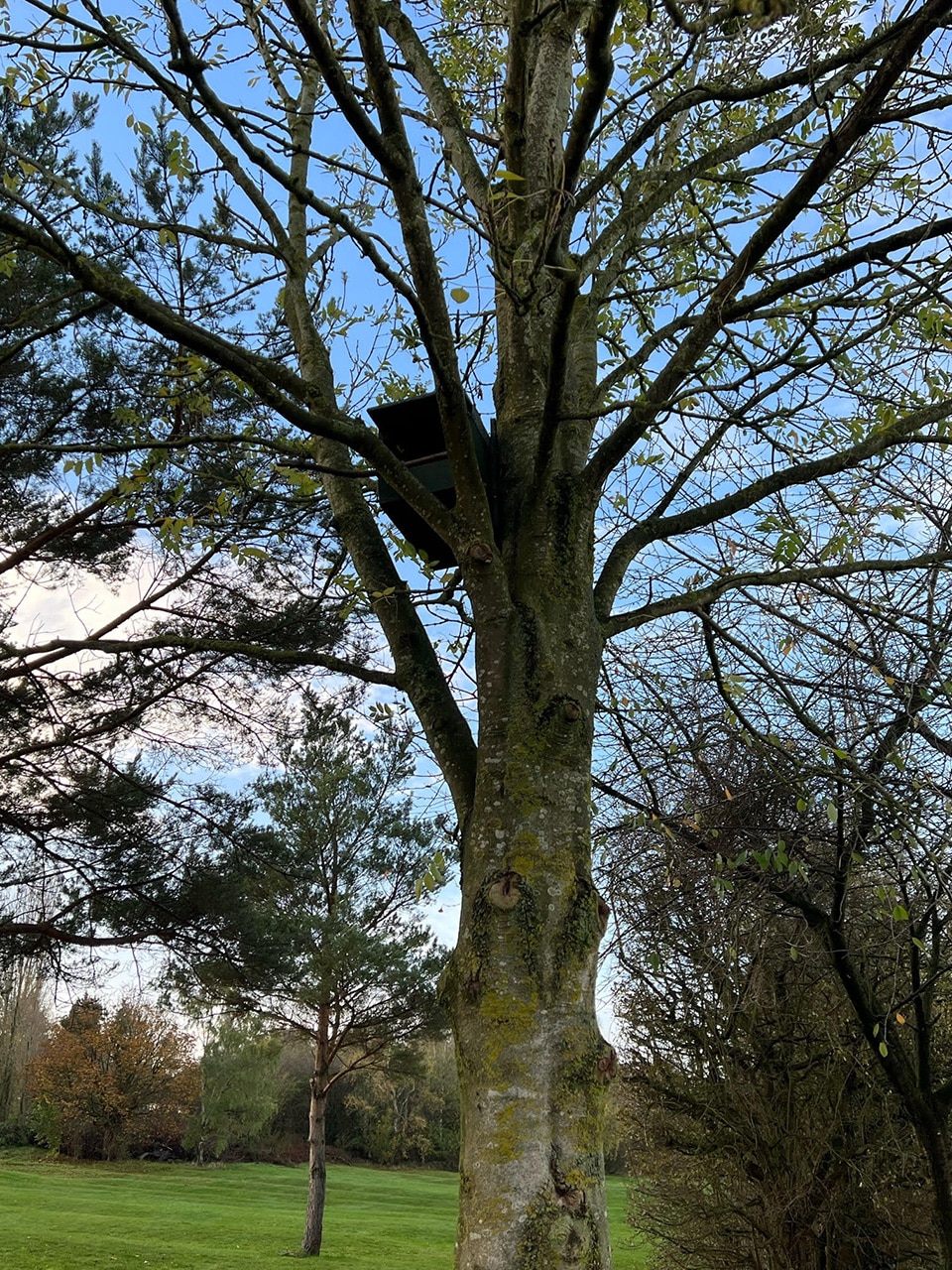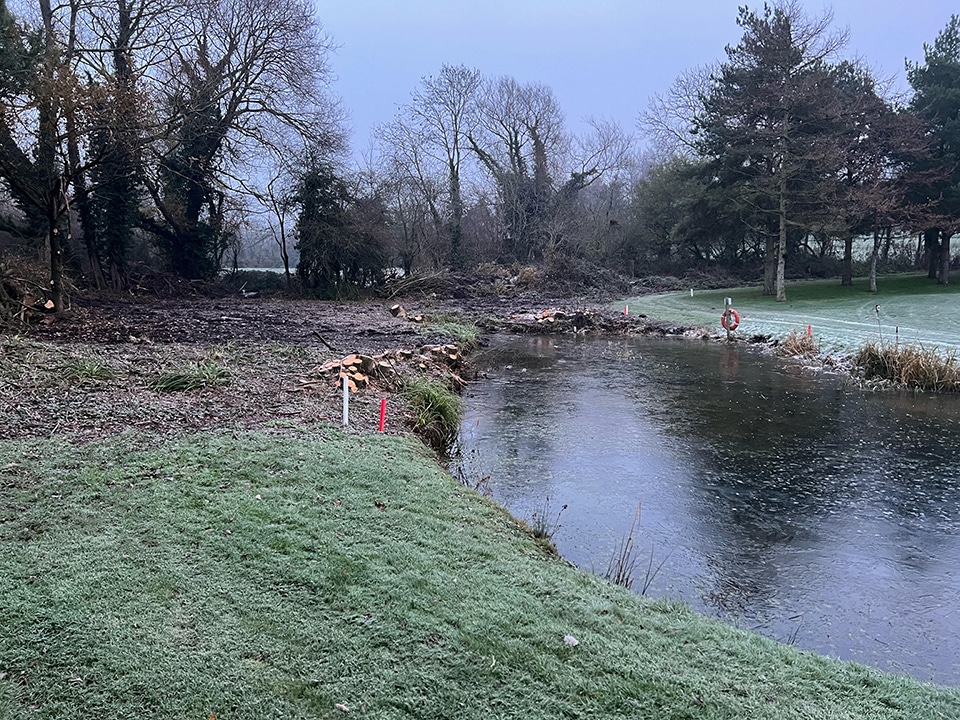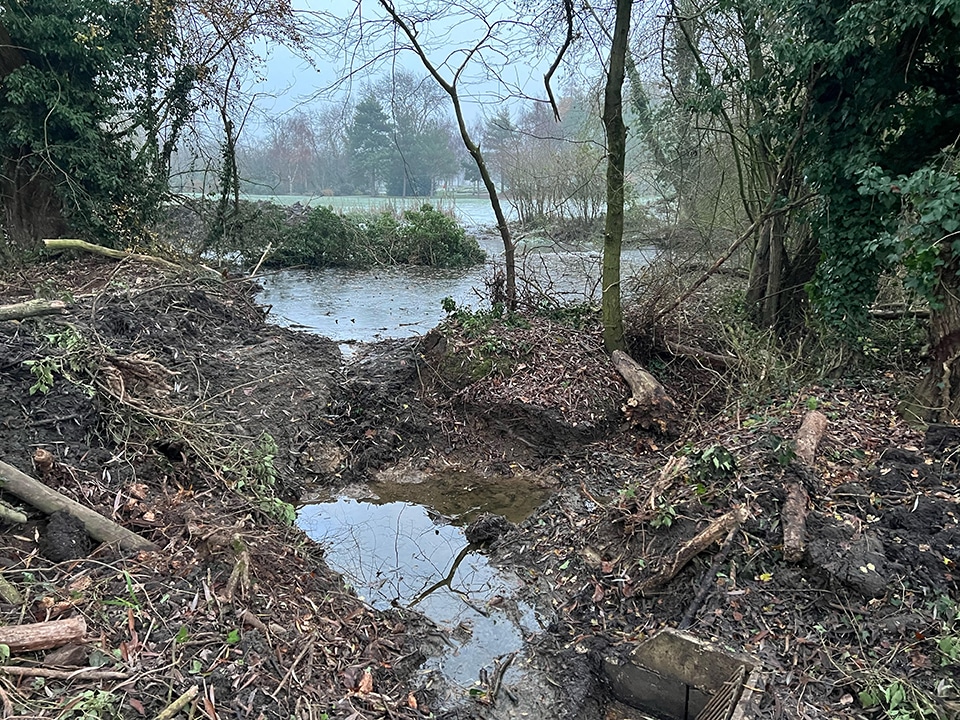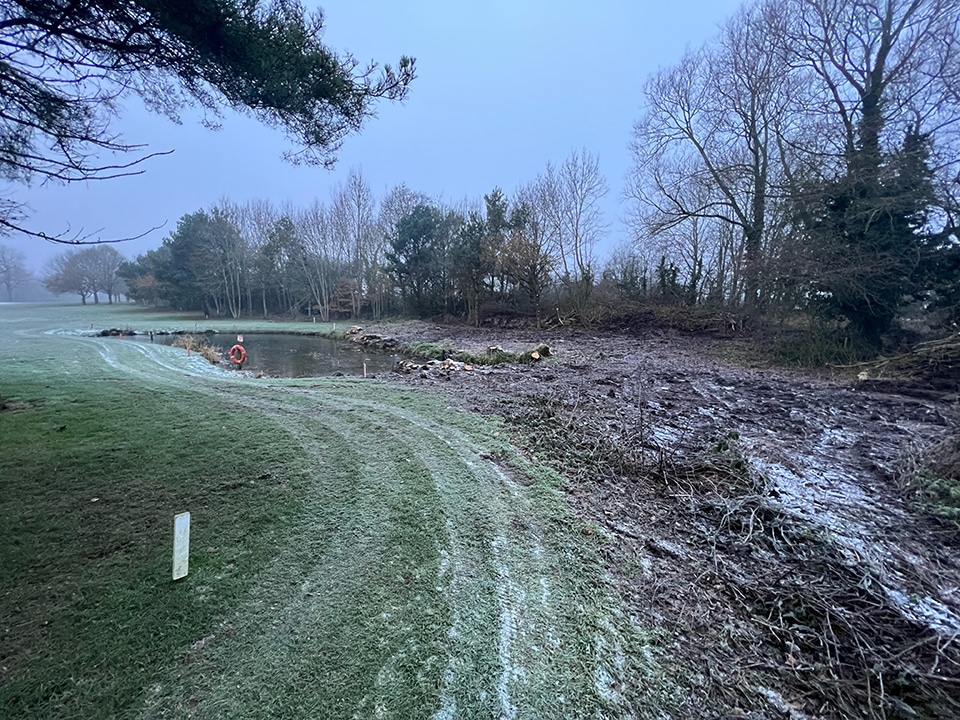Making Homes for Newts
Nature Conservation at Glen Gorse Golf Club
There’s a new Head Greenkeeper at Glen Gorse Golf Club: James Burberry, a passionate wildlife enthusiast, is working with the help of key members like Alan Herbert, on initiatives to benefit nature.
The first, and the more unusual, is a project to restore and expand habitats for a local newt population.
James writes:
“Wildlife and the great outdoors have always been an interest and passion of mine. That, combined with my love of golf, lead me into greenkeeping. I took on the head role at Glen Gorse last October (2021) and have been in the industry since 2007. I’m also part of the steering group for the Greener Golf Group in Leicestershire and Rutland.
Glen Gorse is a beautiful parkland course on the edge of Leicester. It offers some fantastic green space for wildlife in what is a very much a built-up area.
We have started working with EMEC Ecology (East Midlands Environmental Consultants). EMEC are licensed by Natural England to redevelop and improve pond habitat for the Great Crested Newts in Leicestershire. The work started at the beginning of last month (October 2021) to clear out some areas and use the logs and brash for natural habitats. The ponds will be restored and dug to different levels to help the newts with breeding. Last week we replaced some rotten sleeper steps in the area and found four Great Crested Newts. We very carefully placed them into a bucket and moved them to the area we have been creating for them which is very close by.
We have plans to start a composting area once we have found and cleared a space. Wildflowers are also on the list, I’ve got a good space for them to bring some colour and wildlife near a tee complex and this project will be starting soon.
With substantial help from Alan Herbert (below), a member of the club, we installed 26 bird boxes ahead of the 2022 breeding season. This included Barn Owl, Tawny Owl, Kestrel, Blue and Great tits, Treecreeper, Robin and Nuthatch along with two bat boxes.”
Alan Herbert writes:
“Loss of wildlife habitat and reduced nesting sites is unfortunately a common theme here in the UK today. Here at Glen Gorse Golf Club we decided to try and do our bit and undertook a project to build and put up a number of nest boxes. Thanks to the fantastic support of our members, who supported our project with donations to buy the raw materials, I set about building 26 boxes ahead of the 2022 breeding season for Barn Owls (2), Kestrels (2), Blue and Great Tits (14), Treecreeper (2), Robin (5) and Nuthatch (1). A member also very kindly donated a Tawny Owl box as well.
The owl and kestrel boxes were used but unfortunately not by our desired inhabitants as our local squirrels moved in. Better luck next year! However, we did have several Blue and Great Tits and Robins successfully use a number of the boxes, and when I was cleaning the boxes out this autumn, I also found a Wren nest in a Blue Tit box! We also have 4 seed feeders that are regularly emptied of sunflower hearts.
It’s not just about the birds – I also built 2 bat boxes and we will wait to see if they are used. The project has generated a lot of interest with our members, with some even asking how best to site nest boxes in their own gardens and what foods should be put out as well. Every little bit helps!”
For further details, please contact James Burberry at course.manager@glengorsegolfclub.co.uk
For further information about EMEC Ecology, contact Philip Bych at philipbych@emec-ecology.co.uk
Their website is www.emec-ecology.co.uk
The work on the habitat restoration for the newts is still ongoing. This Case Study will be updated shortly, with more photos of the work being undertaken.
Update on January 2023
EMEC have now finished their part of our newt pond restoration. All the work was completed in four days, and they have really smartened up the area around the 6th and 16th ponds. They have cleared a lot of trees and brash that overhung the ponds, moved spoil and clay to create a dam to help keep more water in the pond on the 16th, dug out part of the 6th to create different depths for the newts and other wildlife to explore and create habitats. All the logs have been saved to create bug hotels once the area has settled and started to grow back. The brash was moved away and left for small animals and insects to hide in and create a home.
Once we start to get some growth in the area we are going to shape it around the pond to keep it tidy and let the rest grow, add in some wildflower for the insects and bees, build the bug hotels and add in some bat and bird boxes to create a really nice wildlife habitat the golfers can look at when playing the holes but its far enough away for all the animals and insects to live happily and not get disturbed.
This has been a great project for me and Glen Gorse golf club and one that will continue to grow and strive. It’s the first of a few we have planned and I’m hoping to be working along side EMEC again in the future.
For further details, please contact James Burberry at course.manager@glengorsegolfclub.co.uk
For further information about EMEC Ecology, contact Philip Bych at philipbych@emec-ecology.co.uk
Their website is www.emec-ecology.co.uk
